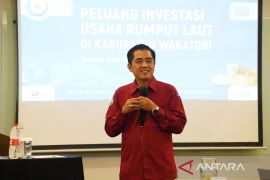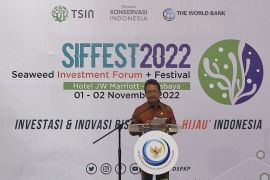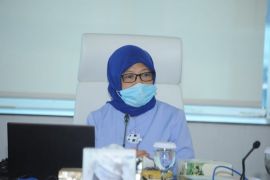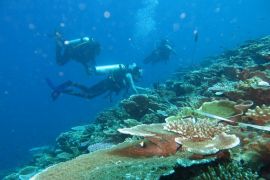"Most of the investment is expected to be made in fish culturing activities. Up to the third quarter, investment in the fish culturing had reached Rp15.82 trillion," Maritime and Fisheries Affairs Minister Sharif Cicip Sutardjo said here on Monday.
He said that the value of investment made in the maritime and fisheries was still small as it only accounts for 0.4 percent of the total investment made in the primary sectors.
In the meantime, the value of foreign investment made in the maritime and fisheries sectors only accounted for 0.3 percent of the total foreign investment, or about 1.2 percent of the total foreign investment in the primary sectors.
In this respect, the KKP will aim at the maritime and fishery development linking the chains of the upstream and downstream fisheries sectors.
The minister said that science and technology will be applied in the development of the maritime and fisheries in every point of the chains between the up and down stream sectors.
"To increase the added value of the maritime and fisheries sector, the KKP will continue to encourage the cultivation of both the on-farm and off-farm fisheries so that it would have positive impact on the people`s economy and foreign exchange earning," Minister Sharif said.
He said that if 80 percent of the population consumed 31.64 kilograms fish per capita per year, about 6 million tons of fish must be made prepared a year.
Therefore, the KKP this year has launched shrimp and milk fish pond revitalization programs with ponds covering 1,500 hectares.
The fish pond pilot projects were scattered in Serang, Tangerang, Karawang, Indramayu, Subang and Cirebon.
Minister Sharif said earlier that the industrialization of the nation`s marine and fisheries sectors, through integrated upstream and downstream production, will be accelerated by eight factors.
"These eight key factors should be completely supported by the government, the people, and the business community," he said in a written statement.
"The eight key factors are guaranteed availability of marine resources; adequate facilities and infrastructure; innovation and application of technology; high added value of marine and fisheries commodities; reliable and competent human resources; well-managed market; investment support from the business community; and favourable government regulation," Sutardjo continued.
He noted that the main objective behind industrializing the marine and fisheries sectors was to support the four pillars of national development, namely pro-growth, pro-job, pro-poor, and pro-environment.
"However, the industrialization of marine and fisheries should not happen at the expense of the sustainability of natural resources and the environment," Sutardjo said.
(A014/H-YH)
Editor: Suryanto
Copyright © ANTARA 2012











